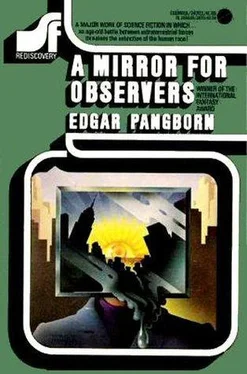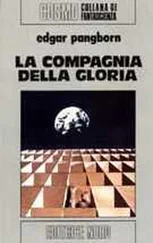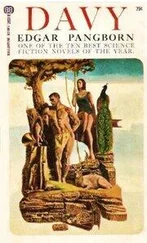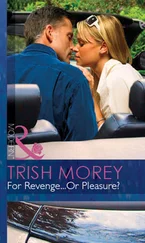She said with adult bitterness: “He does think Billy’s his friend. I tried to tell him different, once. He wouldn’t believe me. It’s because he thinks everybody is good.”
“I don’t know, Sharon. I don’t think anybody who wasn’t would fool Angelo very long.”
Well, that was good doctrine, and seemed to make her feel better. She again changed the subject delicately: “If you want to, we could make Amagoya a space ship. I do that sometimes.”
“Sound idea.”
There was nasty furtive scampering somewhere in that dead kitchen. “Think nothing of it,” said Sharon. “You see, when I leave here I cover up everything with that other box, to keep off the phenomenons….”
Handsomely dressed, Angelo met me on the front steps when I returned from the space ship, and transmitted an invitation to stop downstairs for a little coffee. Feuermann was already there. Rosa’s idea of a little coffee included pizza and half a dozen other items, all tempting. Rosa herself, in Sunday clothes, looked wilted from something more than the heat of the morning. She reminded me ruefully: “You wanted peace and quiet, Mr. Miles.”
“Oh, call me Ben.” I tried to relax without losing the primness of Mr. Miles — which had never had a chance to get established, with Sharon. We kicked around the question of photograph albums, Feuermann returning obsessively to the main point: what could a burglar want of them?
“We aren’t missing any down here,” Angelo said. “I looked.”
Later Feuermann said hesitantly: “Angelo, Mac told me he’d — Well, dig a place. In the yard. If you want him to.”
Angelo choked on a mouthful. “If it’d make him feel better.”
“Dear,” Rosa muttered. “ Angelo mio — please—”
“Sorry, but can’t somebody tell Mac I don’t wear diapers nowadays?”
“Why, son,” Feuermann said, “Mac just thought—”
“Mac just didn’t think.”
In the raw silence I suggested: “Look, Angelo — have patience with the human race. They try.”
He glared across the pretty kitchen table, hating me. The hatred softened and vanished. He seemed only puzzled, perhaps wondering who and what I was, what place I had in his secret widening world. He apologized with not much difficulty: “I’m sorry, Uncle Jacob. Glad to have Mac do that. I was mad because I can’t manage a spade with my damned leg.”
“Angelo, don’t use those words — I’ve asked you—”
He turned beet-red. Feuermann intervened: “Let him, this time, Rosa. I would too if Bella’d been mine. A damn never hurt anybody.”
“Sunday morning,” Rosa whimpered, “only an hour after Mass… It’s all right, Angelo, I’m not cross. But don’t do it. You don’t want to sound like those tough kids down the street.”
“They aren’t so tough, Mama.” He fooled with his food. “Billy Kell puts on a show but it doesn’t mean anything.”
“Tough talk makes tough thinking,” said Feuermann, and Angelo seemed not to resent that.
When I made my manners Angelo followed me to the basement stairs and asked without warning: “Who are you, Mr. Miles?”
His way, to fetch up the hardest questions — and I don’t mean I was worried about the Martian angle: I wasn’t. I disliked having to fence with him. “A not very exciting ex-teacher, as I told your mother. Why, friend?”
“Oh, you sort of understand things, maybe.”
“Don’t lots of people?”
His Latin shrug dismissing that was desperately mature. “I dunno…. I met an old man in the park, month or so ago. Maybe he did. He said he’d lend me some books, but then I never saw him again.”
“What were the books, remember?”
“Somebody named Hegel. And Marx. Well, I tried to get Marx out of the public library, but they threw a whingding.”
“Said mere children don’t read Marx?” He looked up quickly, with some incredulity. “I could get those for you if you like.”
“Would you?”
“Those and others, sure. You can’t study out a thing for good or bad if you don’t go to the source. But look, Angelo: you scare people. You know why, don’t you?”
He flushed and scraped his shoe tip on the floor like any small boy. “I don’t know, Mr. Miles.”
“People think in fairly rigid patterns, Angelo. They think a twelve-year-old boy is just thus and so, no argument. When one comes along who thinks ahead of his age, well, they feel as if the ground shook a little. It scares ’em.” I put my hand on his shoulder, wanting to say what words could not; he didn’t draw away. “It doesn’t scare me, Angelo.”
“No?”
I tried to imitate his very fine shrug. “After all, Norbert Wiener entered college at eleven.”
“Yeah, and had his troubles too. I read his book.”
“Then you know some of what I was trying to say. Well, other books. What do you like to read?”
He abandoned caution and said passionately: “Anything! Anything at all….”
“Roger!” I said, and squeezed his shoulder and started upstairs. I am not sure, but I think he whispered: “Thanks!”
Early that afternoon I had my feet up in my own room, frustratedly trying to guess what Namir’s next move might be. Feuermann wandered in, spruced up but not solemn. He said he had a date with his wife. At his age I suppose one needn’t be portentous about a Sunday afternoon visit to the cemetery. He was taking Angelo along for the drive and invited me to join them.
His “jalopy” was a ’58 model. I marveled at the swooping lines of some ’62s and ’63s that Angelo pointed out as we purred down Calumet Street. He and the old man talked automobiles, somewhat over my head. I was the only one who noticed a gray coupe sticking behind us as we worked through town and out on a splendid country highway. “The cemetery isn’t in Latimer?”
“No, Susan’s people were Byfield folks. She wanted to be buried out there. About ten miles. Susan Grainger she was — been Graingers in Byfield since 1650, they say. My papa, he came over on the steerage.”
“So’d my grandfather,” said Angelo. “Anybody care nowadays?”
Feuermann glanced at me over the small brown head and drooped an eyelid and smiled. I said: “One world, Angelo?”
“Sure. Isn’t it?”
“One world and a good many civilizations.” He looked bothered.
“Well now,” said Jacob Feuermann, “I kind of like the idea of one world government.”
“I’m afraid of it,” I said, watching Angelo. “Too easy for it to turn monolithic, for individualists to kill individualism without knowing it. Why not seven or eight federations corresponding to the major civilizations, under a world law recognizing their right to be unaggressively different?”
“Think we could ever get such a world law? And where’s your guarantee against war in that, Miles?”
“There can’t be any except in human ethical maturity. A sensible political structure would help enormously, but there’s going to be risk of war so long as men think they can justify hating strangers and grabbing for power. Human hearts and minds are basic — the rest is mechanics.”
“Pessimist, huh?”
“Not a bit, Feuermann. But scared of the wishful thinking I sometimes do myself. In politics, wishful thinking just gives the wolves a license to howl.”
“Mm.” The old man squeezed Angelo’s bony knee. “Angelo, you figure Miles and me are old enough to sweat out these things?” Angelo might have disliked that gentle sarcasm from anyone but Feuermann. He chuckled and flung a make-believe punch at Feuermann’s shoulder, and we pushed it around on that more comfortable level all the way to Byfield. That gray coupe stayed behind us and I didn’t mention it. This was a well-traveled road. My imagination could be overheated. Still, Feuermann drove with slow caution and many other cars whooshed by us impatiently. When we pulled into a parking lot near the cemetery the gray car speeded up to hurry past, the driver bending down with averted face.
Читать дальше












